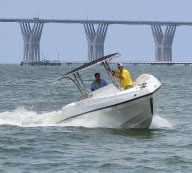Maintaining Boat Electrics
With time and frequency of use, your boat’s electrical system may require constant repairs and some replacements. This may become nasty when the boat is insured and the insurance inspector comes visiting one day. However, you can maintain your boats electrical system by observing a few factors.

The first thing you need to observe is the type of material and equipment you use. Use only material that are rated for marine use and not land. There is a huge difference between the electrical material you use on your boat and that you may use on your car and other home appliances. This is because they are not constructed for this type, insulated and grounded to handle the waters and may cause a fire or even lead to electrocution. Ideally, electronic appliances to be used on your boat’s engine compartment or bilges should be well constructed to avoid the risks of a fire or explosion.
Boats that cruise in salty waters are more susceptible to corrosion than those on soft waters. You need to check the boat’s electric’s system consistently as any faulty connection as a result of corrosion can even cause fire. You need to address offshore cord too by checking both ends for any corrosion on the prongs. Using a screw driver, tighten all the screws and don’t hesitate to call an electrician if you still feel there is something amiss. The same through check must be repeated if you have a generator whenever you maintain boat electrics.
Maintaining Boat Electrics An The Inverter
Do you have an inverter? If you do, pay close attention to the 12vdc side as a lot of current is drawn on the 12vdc side. Ensure that there is nothing that is preventing a proper and tight connection as they are the best indicators of a fire. When maintaining the boat’s electrics, don’t forget to check the boat’s breaker. See to it that all the screws to the breakers and the buss bars are tight as they usually loosen over time because of the heating and cooling.
The boats 12vdc system is one of the most important components of your boat and must be looked into when maintaining boat electrics. This is because a boat can actually run without either 220 or 110vac but not 12vdc. Ensure the battery connections are clean without any signs of corrosion. Also test the alternator and the connections to the starter as well.
Please note that the exercise of maintaining boat electrics is risky and you must be very careful. If you are doubtful of anything, don’t risk, contact a qualified electrician. Perform these checks regularly.
Want Us to take over Maintaining Boat Electrics Please Contact Us